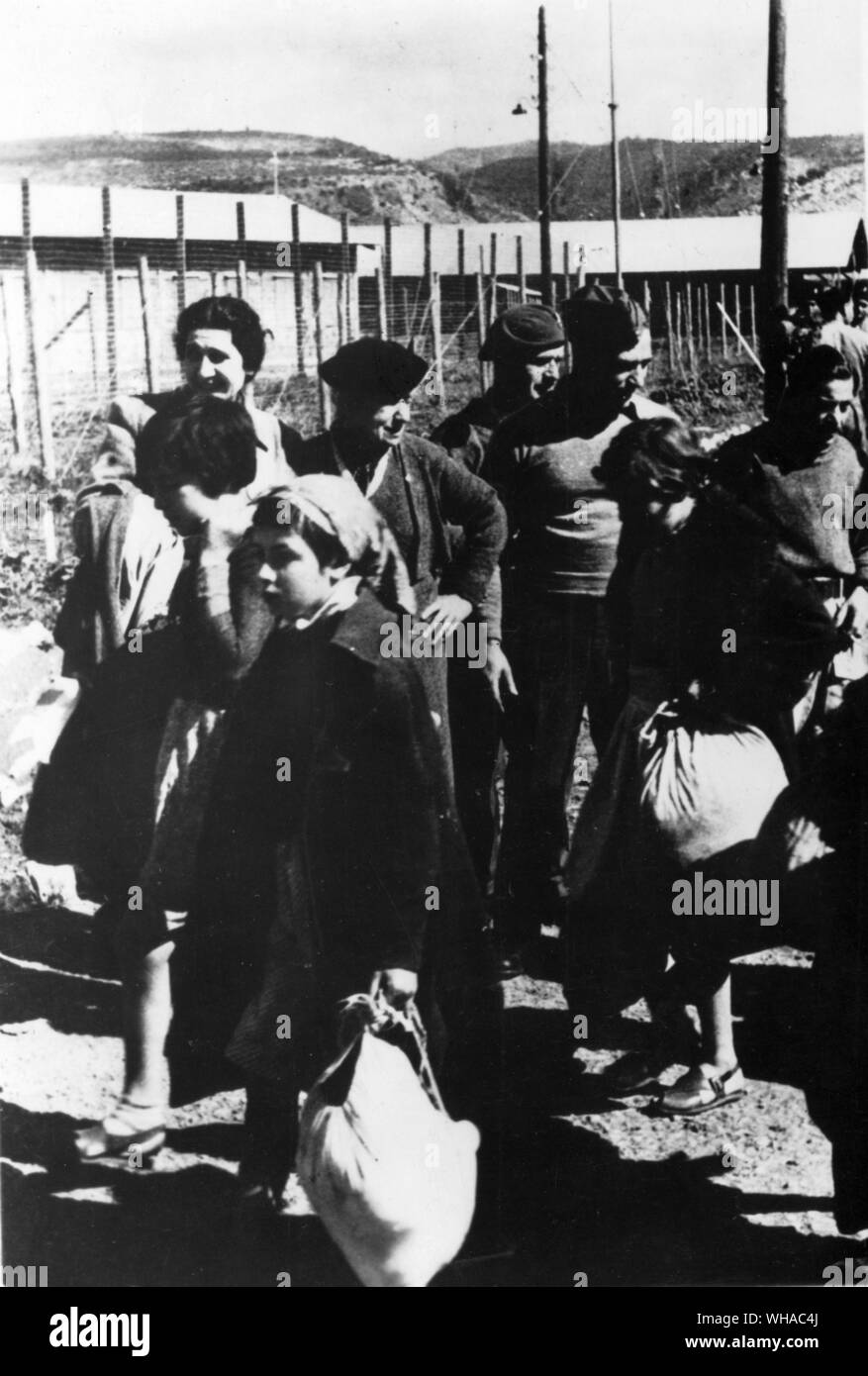Henrietta Szold, hand on hip, greets youth Aliyah arrivals, Palestine. 1934. One of eight daughters of a Baltimore rabbi, Szold was a passionate and accomplished student of Judaism. She even won permission to study Jewish texts at the then male-only Jewish Theological Seminary, on condition that she never agitate to be granted rabbinic ordination. Later, she translated Heinrich Graetz's monumental multivolume History of the Jews from German into English. Szold was, in certain respects, a forerunner of Jewish women's liberation. When her mother died in 1916, a close male friend, Haym Peretz,

Image details
Contributor:
Smith Archive / Alamy Stock PhotoImage ID:
WHAC4JFile size:
73.5 MB (1.3 MB Compressed download)Releases:
Model - no | Property - noDo I need a release?Dimensions:
4164 x 6171 px | 35.3 x 52.2 cm | 13.9 x 20.6 inches | 300dpiDate taken:
28 August 2019Photographer:
Smith ArchiveMore information:
Henrietta Szold, hand on hip, greets youth Aliyah arrivals, Palestine. 1934. One of eight daughters of a Baltimore rabbi, Szold was a passionate and accomplished student of Judaism. She even won permission to study Jewish texts at the then male-only Jewish Theological Seminary, on condition that she never agitate to be granted rabbinic ordination. Later, she translated Heinrich Graetz's monumental multivolume History of the Jews from German into English. Szold was, in certain respects, a forerunner of Jewish women's liberation. When her mother died in 1916, a close male friend, Haym Peretz, volunteered to say the Mourner's Kaddish for the dead woman. Szold graciously refused the offer. I believe, she wrote him, that the elimination of women from such duties was never intended by our law and custom-women were freed from positive duties when they could not perform them [because of family responsibilities] but not when they could. It was never intended that, if they could perform them, their performance of them should not be considered as valuable and valid as when one of the male sex performed them.. Szold's outstanding contribution to Jewish life was the creation of the largest Jewish organization in American history, Hadassah Women. Although Zionist, Hadassah particularly involved itself in meeting the health needs of both Jews and Arabs in Palestine. Today, the foremost hospital in Israel and the entire Middle East is the Hadassah Hospital in Jerusalem. Szold insisted that the most up-to-date medical treatment be extended to the Arabs of Palestine as well as to the Jews, and Hadassah played a major role in lowering Arab infant mortality. The Hadassah spirit of volunteerism and nondiscrimination was unfortunately rejected by the Arab leadership, which may have feared that its example would lessen hatred between Jews and Arabs. .